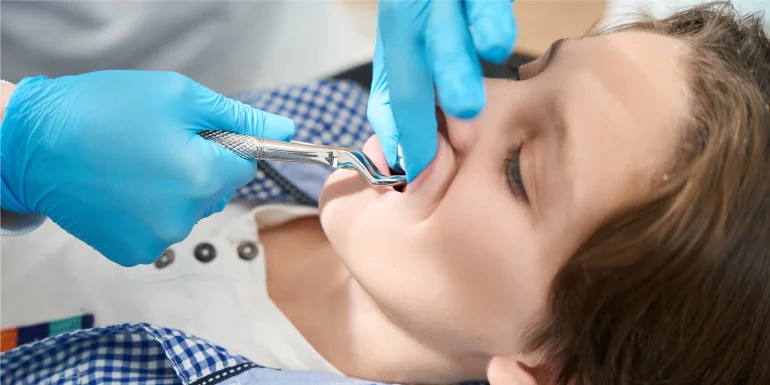Everything You Need To Know About Dental Bonding
Dental bonding is a popular dental procedure that uses a composite resin material to mimic the appearance of a natural tooth. Bonding is an ideal treatment to close down gaps, repair chips, or change the color and shape of a tooth. Dental bonding is also more cost-effective and reliable in comparison to many other cosmetic dental treatments.
Benefits of Dental Bonding-
Cosmetic dental bonding comes with several advantages:
- Less invasive– Unlike dental crowns and porcelain veneers, dental bonding doesn’t require enamel removal or any significant alterations in teeth.
- Versatile– The treatment can conceal a wide range of cosmetic imperfections such as discoloration, cracks, chips, and gaps.
- Affordable treatment– Dental bonding is counted among the most cost-effective cosmetic dental procedures. You won’t have to shell out your savings for the treatment.
Quick and convenient– This treatment doesn’t require multiple appointments. Much of the time, dental bonding is completed in a single visit to a dental clinic.
How Dental Bonding Enhances Smiles-
Dental bonding is designed for making cosmetic improvements to the patient’s smile. The tooth-colored composite resin material is specifically used for:
- Concealing cracks or chips in the teeth
- Camouflaging discoloration of teeth
- Closing teeth gaps and spaces in between
- Lengthening teeth
- Giving good shape to teeth
What is The Pre-Treatment For Teeth Bonding?
Before dental bonding, the dentist discusses the patient’s dental goals. They take dental X-rays, examine the gums and teeth, and ensure that the patient is eligible for the treatment.
Individuals with severe gum disease, tooth decay, or any oral health issue will probably need to get those issues treated by an expert dentist in Southampton before proceeding with dental bonding.
What To Expect During Treatment-
For dental bonding, the dentist will perform the following:
- Choose the right shade of teeth – First the dentist selects a composite resin material matching the natural teeth color of the patient.
- Apply the composite resin material – This material has a putty-like consistency. After applying it on the affected area, it’s smoothed and molded to the required shape.
- Prep the tooth – At this step the tooth’s surface is roughened using a conditioning liquid. This helps the bond material adhere to the tooth.
- Curing the material – Now the dentists harden the composite resin using a special curing light. It “bonds” the resin material to the tooth’s surface.
- Tooth polishing – Finally, the dentist polishes the tooth to give it a natural, shiny look.
Dental bonding procedures can take around 30 to 60 minutes for each tooth.
Is Dental Bonding Painful?
Dental bonding is usually a painless treatment, as the dentist doesn’t work near the pain-sensing nerve within the tooth. In most cases, no anesthesia is needed. However, some individuals may face temporary sensitivity once the process is completed. Pain relievers like NSAIDs (if you are not taking other interfering medications) can help get rid of this temporary discomfort.
Precautions After Dental Bonding
It is essential to maintain proper oral hygiene after dental bonding to maintain your oral health. Brush at least two times a day using a fluoride toothpaste and soft toothbrush. Don’t forget to floss between teeth every day. Additionally, ensure you visit your dentist if you have any mouth pain or discomfort.
Without these healthy habits in place, dental changes may not last as long as they would with proper care and hygiene. Additionally, proper oral hygiene can prevent far more pain and hassle down the road.
If you are looking for a highly qualified dental expert who can help you with teeth bonding, then come visit Miracle Dental Center. We believe in compassionate care and building long-lasting relationships with our patients. Contact us to make your appointment for and discuss all your needs and concerns.


